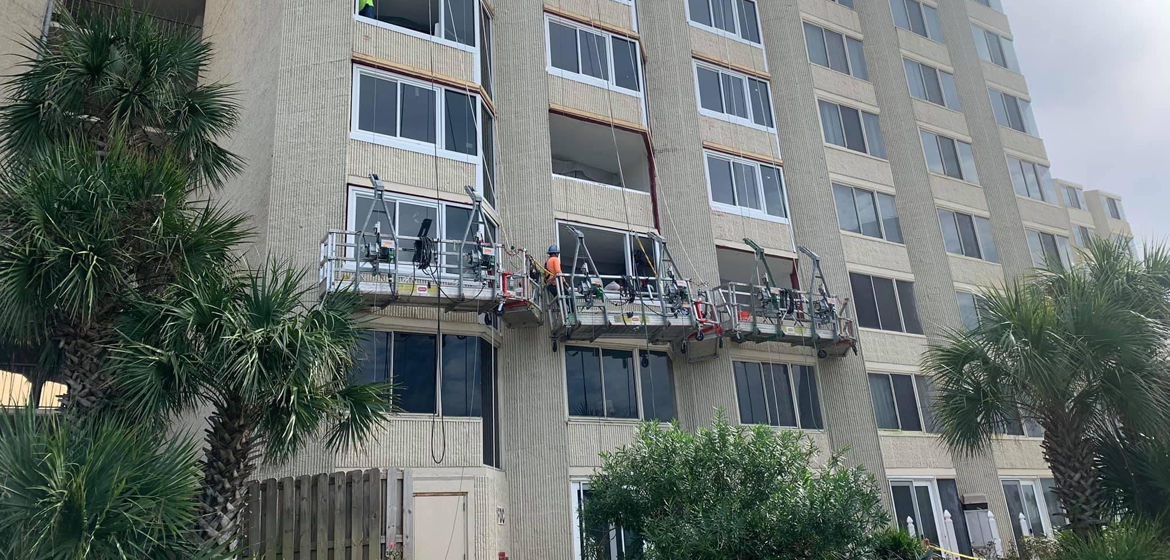5 Essential Tips For Fire Safety In Your Apartment Building

Fire safety is a critical concern in apartment buildings, where many families and individuals live in close proximity. In the event of a fire, the safety of residents depends on both preventive measures and preparedness. To help you ensure the well-being of yourself and your neighbors, we’ve compiled five essential tips for apartment fire safety. From smoke alarms to escape plans, these measures are crucial for preventing fires and responding effectively if one occurs. Read on to learn how to protect yourself and your community from fire hazards in apartment buildings.
Install and Maintain Smoke Alarms
Smoke alarms are your first line of defense against a fire. Ensure that your apartment is equipped with working smoke alarms. Most building codes require smoke alarms to be installed in bedrooms, hallways, and common areas. Regularly test your smoke alarms to make sure they are functioning correctly, and replace the batteries at least once a year.
In addition to individual smoke alarms, apartment buildings should have a centralized fire alarm system that alerts all residents in case of an emergency. Familiarize yourself with the sound of the fire alarm so that you can recognize it quickly in case of a fire.
Know Your Escape Routes
Familiarize yourself with the layout of your apartment building and know the locations of all exit stairwells and emergency exits. In the event of a fire, you may need to exit the building quickly, and knowing your escape routes can save valuable time.
Practice using the stairwells and exits during non-emergency situations so that you are comfortable with the routes. It’s also a good idea to conduct fire drills with your family members to ensure everyone knows what to do and where to go if a fire occurs.
Fire Extinguishers and Fire Safety Equipment
While it’s not typically required for individual apartments to have fire extinguishers, having one can be a valuable addition to your fire safety arsenal. A fire extinguisher can help you suppress small fires before they escalate. If you choose to keep a fire extinguisher, make sure it is the appropriate type for common household fires, and learn how to use it properly.
Additionally, be aware of the location of fire safety equipment in your apartment building, such as fire hoses, extinguishers, and fire blankets. In case of a fire, this equipment can be crucial for containing the flames until professional help arrives.
Prevent Fire Hazards
Preventing fires is just as important as being prepared for them. Take precautions to reduce fire hazards in your apartment. Avoid overloading electrical outlets, and never use damaged or frayed electrical cords. Keep flammable materials away from heat sources, such as stoves and space heaters. Dispose of cigarettes properly, and if you smoke, do so in designated areas.
In shared spaces like laundry rooms and common kitchens, be vigilant about fire safety. Report any maintenance issues or potential fire hazards to building management promptly.
Communicate with Neighbors
Maintaining open communication with your neighbors is vital for apartment fire safety. Get to know the people who live in your building and establish a sense of community. In case of a fire, neighbors can alert each other, assist with evacuations, and provide support during emergencies.
Consider organizing a building-wide meeting or creating a group chat to discuss fire safety and emergency procedures. Encourage fellow residents to stay informed and take responsibility for fire safety measures.
Apartment fire safety is a shared responsibility that requires both preventive measures and preparedness. Install and maintain smoke alarms, know your escape routes, and consider having a fire extinguisher. Additionally, prevent fire hazards in your apartment and communicate with your neighbors about fire safety.
By following these five essential tips, you can help protect yourself and your community from the devastating effects of fires in apartment buildings. Remember that fire safety is a collaborative effort, and your proactive actions can make a significant difference in ensuring the safety of everyone in your building.
